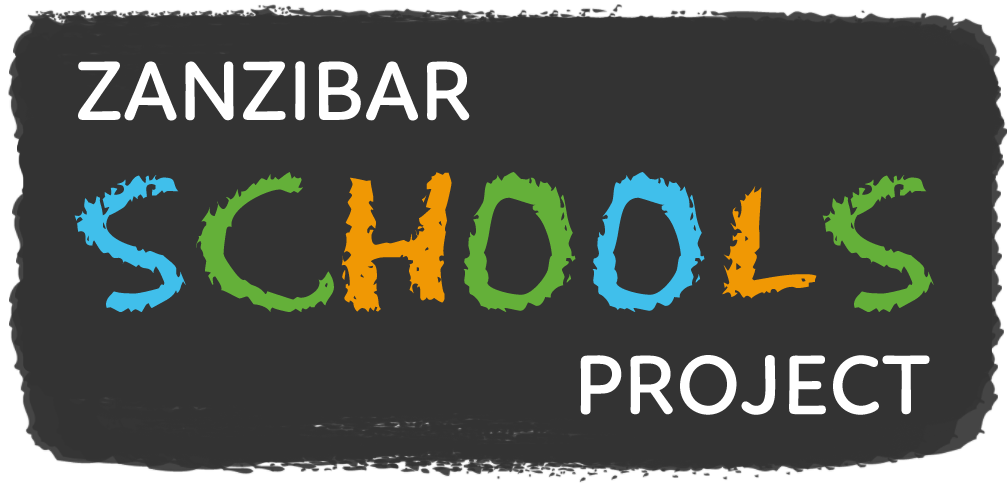Just over a year ago we arrived in Zanzibar and our friends Feroz and Hassan took us to Unguja Ukuu and we started teaching English with the inspiring local teacher Gasica. They weren’t too sure that we’d stay for the full 3 months, let alone come back for a second year. But here we are again! Just like our volunteer Chloe, who’s left after an amazing 9-month stay here, we find we learn so much more than we teach! This time we’re going to focus on helping English classes (known by the students as Safari English Club) become sustainable following Gasica’s ZL4LF model where he finances his initiative through the bicycle workshop, chicken and organic farm and bus service.
We went back to the school and were excited to see the Kio Kits working – they’d arrived after we left Zanzibar. The students love using them and we were impressed that the students use them for self-directed learning. There are three sections on the Kio Kit – Learn, Play and Grow. Students are using all three sections. We saw a group of older girls discussing a science module and making notes in English. They would not otherwise have access to well-illustrated and well-constructed information and we could see they were enjoying the experience. Usually maths is taught in English, which is confusing when neither the students nor the teachers speak English coherently. So the younger children were enjoying the Swahili cartoons that teach maths and were doing well with additions and subtractions with the aid of mice and elephant illustrations.
Unguja Ukuu is the first school on Zanzibar to have the Kio Kits thanks to the support of the Rotary Club of Zanzibar, Stone Town and Brighton and Hove Soiree. This week we had visitors from the Miele Foundation who are interested to see them in action as they are thinking of investing in a kit. The students were keen to demonstrate how they use the resources.
Also thank you to Brighton and Hove Soiree Rotary club for supporting improvements to the computer room. The floor is now sealed and tiled which means there’s much less dust in the atmosphere and electronic equipment will last longer.
One year on and so much has happened to Gasica, our local teacher who supports our work in Unguja Ukuu. He had an amazing time in the UK, meeting many people who are helping him shape his future plans. He’s so determined to reach his next goal of building a new school and he’s working hard to lay a good foundation for the future. But on Tuesday he was coaching, not being coached. Thanks to Feroz, we met James of the Manoa Foundation, who is based in Nungwe, at the North of the Island. He’s a Ugandan who first visited Zanzibar in 2011, interested in the history of the slave trade.
James realised that the local people need better education to achieve a better life and decided to set up a nursery school, focusing on orphans and those who might not be included in the education system such as the disabled. He set up a school and has 80 children enrolled. Some of the classes take place in the open air and some in a building owned by the local mosque. But the mosque has plans to expand so he’s not going to be able to stay on the site long term and the outdoor classes don’t always take place due to the heavy rains at the moment.
James is struggling to finance his school and to pay salaries (about £350 per month for 5 teachers). Gasica explained that 6 years ago he was in the same situation, struggling to afford to keep his school running. But he realised that by setting up businesses such as the bicycle workshop and the organic chicken farm, he could become self-funding.
James has great links with local hotels and has a lock up facility on a tourist road that doubles as a shop front when he has handicrafts and T shirts to sell. Gasica suggested that James could use his shop front to set up a bicycle hire facility for visitors. James looked as if he could cry with happiness as he realised he could solve his problems. He is already renovating a house as a backpacker hostel to fund the school, so he certainly has business acumen. The bicycle hire facility can be set up reasonably quickly – the next steps are for James to visit PLCI to meet Gasica’s team and for Gasica to decide on how much to charge for the loan of 15 bicycles for a year.
Back to Gasica: since his return home he’s been discussing his visit to the UK with his students and members of the community. They were keen to know about everyday life in the UK including where Gasica shopped for food and who shaved his head regularly (answer: Ann using borrowed electric clippers). This week he’s teaching his teachers the new TEFL techniques that he learnt at the English Language Centre in Hove. So, much that’s changed in a year, but the need to help educate the children remains a challenge.
